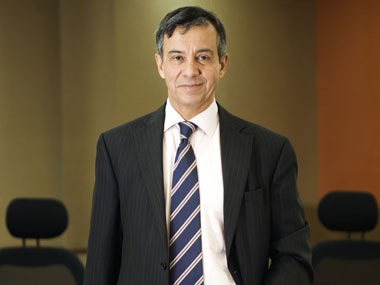ING Vysya Bank was formed as a result of the 2002 acquisition of an equity stake in the Indian Vysya Bank by the Dutch financial conglomerate ING Group. This merger was the first between between an Indian bank and a foreign bank. Today, ING Vysya has over 532 branches across the country and strong retail, private and wholesale banking portfolios, with over 20 lakh customers.
ING Vysya’s Managing Director and CEO Shailendra Bhandari tells Sourav Majumdar what his priorities for the bank are and how the bank’s strategy of focusing on a few key areas is helping growth. Excerpts:
Q: You have been credited with scripting a smart turnaround for ING Vysya when it was largely seen as directionless. What are the few key things which led to this?
A: Well, while the bank was growing at a somewhat slower pace than competition due largely to consolidation issues, I wouldn’t say this was directionless. Having said that, we have managed to leverage some of the unique advantages that the bank has, in terms of being part of a large international business i.e., the ING Group. We have seen some good synergies, especially on the wholesale banking business. Small and Medium Enterprises (SME) financing is another key driver of growth and we have developed a highly successful model in that segment with growth at close to 30 percent per annum, and gross NPA of less than 0.5 percent.
[caption id=“attachment_685794” align=“alignleft” width=“380”] ING Vysya’s Managing Director and CEO Shailendra Bhandari[/caption]
Q: You have earlier said you don’t lend to some risky sectors. Could you elaborate on your lending and risk strategy?
Impact Shorts
More ShortsA: What I meant here was that we do not want to lend to those sectors where we don’t have expertise and without clearly understanding inherent risks that some of these sectors might have; so as an example, we don’t normally do long term project finance, as we feel that we neither have the ability to assess the risk of a ‘greenfield project’, nor the ability to hedge the funding and associated risks.
Q: What, in your view, is ING Vysya’s key differentiator in this rather commoditised world of banking in India today?
A: We’re one of the very few banks which increased our focus to larger corporates and it has helped maintain portfolio quality, since mid-sized companies have been going through a tough time. Similarly, our understanding of the other end of the corporate business, SME lending, is a major strength. Lastly, we are unique in being the only Indian private sector bank which is also part of a major international financial group. This brings certain obvious synergies, as also access to new products, to best practices in terms of systems and controls, and of course extremely high standards of corporate governance.
Q: The RBI is likely to allow some more new banks to enter the sector. How are you preparing for the new competition which is about to come in?
A: We are reasonably small and nimble players in the banking space, and we have certain unique advantages. Competition is a necessary outcome of liberalization and opening up of the economy, and as such will be beneficial for all of us in the long run.
Q: As a banker, what is your view on the future of Indian enterprise and entrepreneurs? There’s a lot of debate around how the Indian scenario is not conducive to entrepreneurship.
A: On a general note I do believe that Indian entrepreneurs have done fairly well over the last ten years. You only have to look at the information technology space to come up with numerous examples. Having said that, there has been, of late, an increasing sense of frustration with the cumbersome processes and the administrative difficulties that come in the way of starting or in growing a business. To that extent, perhaps some of the negative signals from the rating agencies have come at an opportune time, as we have clearly seen a dramatic shift over the last few months, especially from the Finance Ministry. My sense is that while this will take time to fully put right, the Government seems to be quite serious about fixing this.
Q: What is your plan for expansion and growth for 2013 and the next few years? New products, branch expansion, other new opportunities?
A: We take pride in targeting an ‘above industry growth rate’ which we are committed to achieving with better quality than the industry. We have an ongoing plan for opening new branches, and are likely to open 40 to 50 branches over the next year or so. Keep in mind that we already have a fairly extensive network with 532 branches as of December.
Q: There has been a lot of talk about the growth-inflation dynamic and the differences between the Finance Ministry and RBI on the issue. As a banker, what is your view on this, now that the Budget is over and growth is seriously slowing?
A: The RBI has the difficult task of supporting growth, while avoiding stoking inflation. The consensus view among analysts seems to be for an easing of 50-75 basis points over the next year. Industry seems to prefer perhaps twice that, i.e. 150 basis points. My sense is that, while 150 bps looks unlikely, the RBI will reassess towards the latter part of the year, and we might see something in between if growth has not started to recover by then.
Q: Are you looking at any opportunities for consolidation and inorganic growth?
A: I believe we can still leverage growth opportunities internally, especially if you look at our branch network. While we’re always happy to look at opportunities, it’s probably not our top priority right now.
(This was first published in Entrepreneur magazine)


)

)
)
)
)
)
)
)
)



